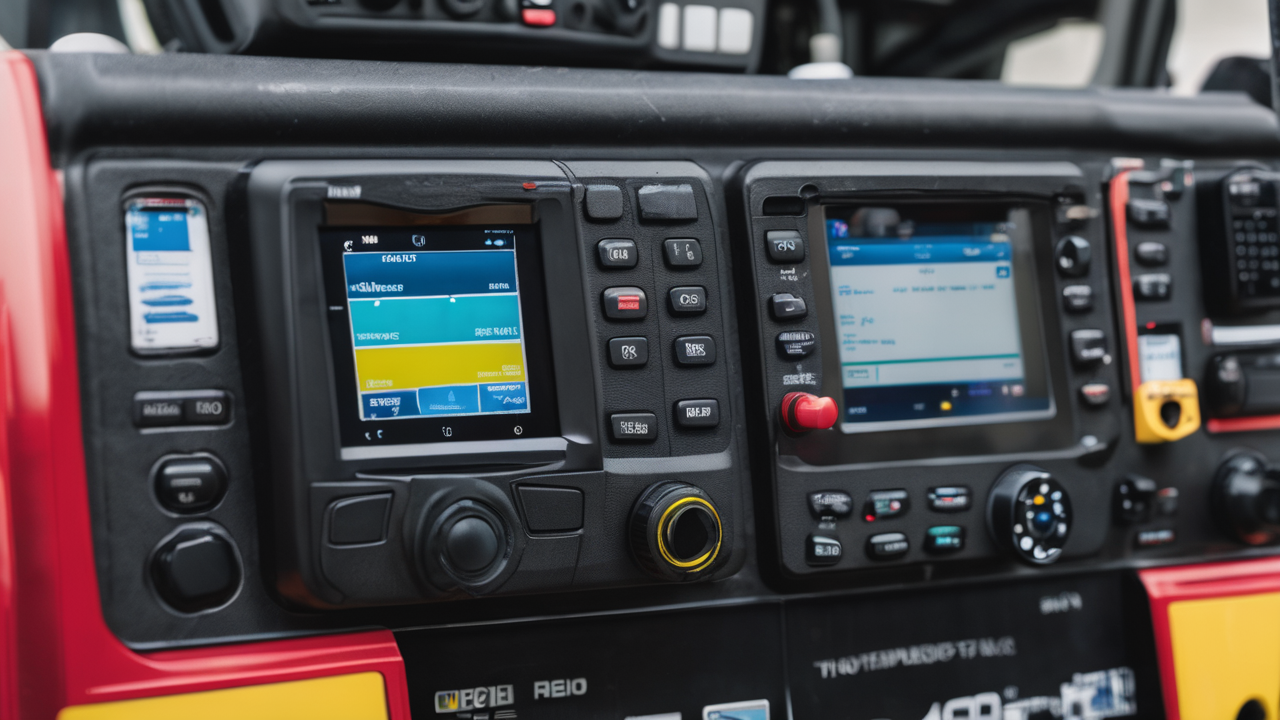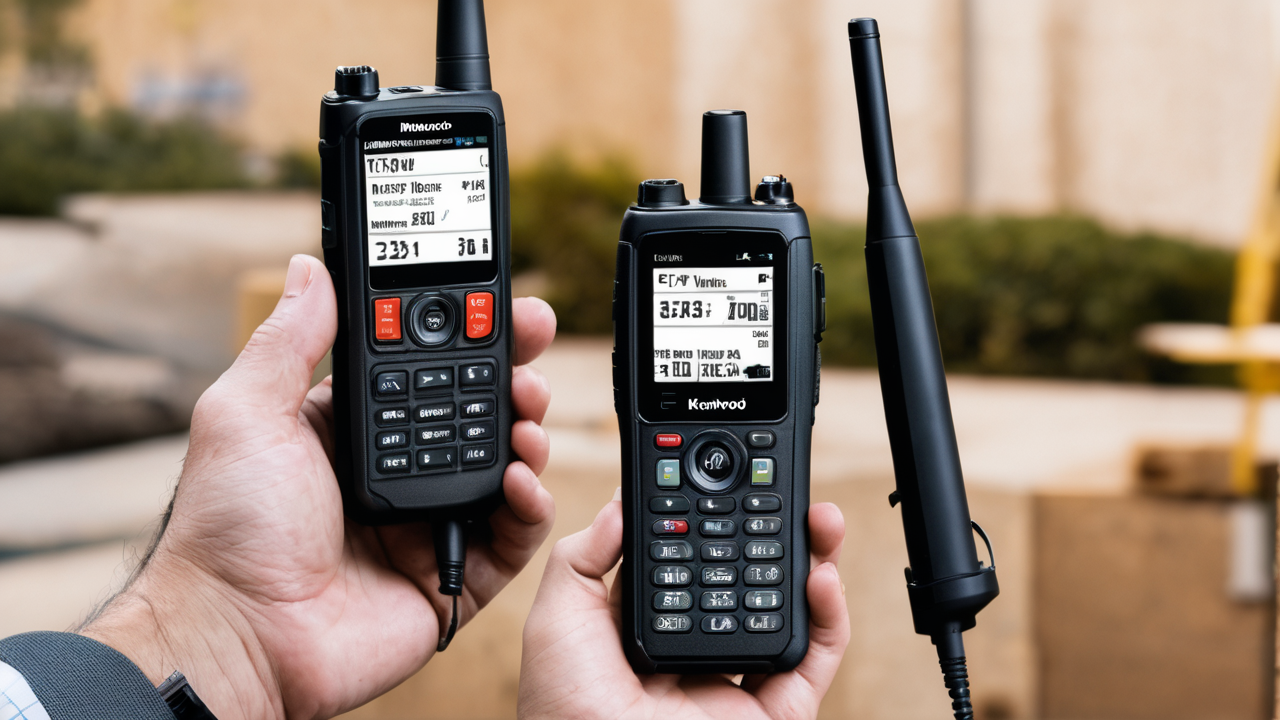The Importance of Reliable Walkie Talkie Radios for Businesses
Understanding the Role of Radio Communication in Operations
Walkie talkie radios play a vital role in business operations. They allow for instant, clear communication among team members. This is crucial in fast-paced work environments.

These devices help coordinate tasks efficiently. They enable quick decision-making and problem-solving. In warehouses, construction sites, or retail stores, radios keep everyone connected.
Radio communication boosts productivity. It reduces delays and miscommunication. Employees can get immediate answers to questions. Managers can give real-time instructions to their teams.
For businesses, reliable radios are not just tools. They are essential for smooth operations and safety. They ensure that all parts of an organization work together seamlessly.
Assessing the Impact of Radio Technology on Emergency Services
Emergency services rely heavily on walkie talkie radios. These devices are lifelines for first responders. They enable coordination during critical situations.
In firefighting, radios help teams navigate dangerous environments. Police use them to coordinate operations and ensure officer safety. Paramedics depend on radios for quick communication with hospitals.
Radio technology has evolved to meet emergency needs. Modern devices offer clear audio even in noisy settings. They have longer range and better signal penetration in buildings.
Many radios now integrate with other emergency systems. This allows for more efficient dispatch and response. The impact of radio technology on emergency services is significant and life-saving.
Key Features to Look for in Walkie Talkie Radios
Evaluating Durability and Battery Life for Long-Shift Workers
For long-shift workers, durability and battery life are crucial. Radios must withstand tough conditions and last entire shifts.

Look for radios with robust build quality. They should be shock-resistant and waterproof. This ensures they survive drops and exposure to elements.
Battery life is equally important. Seek devices that offer 12-24 hours of use. Some models have removable batteries for easy swapping during long shifts.
Consider radios with energy-saving features. These can extend battery life significantly. Look for options with different power settings to balance performance and longevity.
Durability certifications like IP67 or MIL-STD-810 are good indicators. They show the radio can handle harsh environments. For long-shift workers, these features are not luxuries but necessities.
The Significance of Advanced Technology in Radio Devices
Advanced technology in walkie talkies enhances communication quality. It improves user experience and expands functionality.
Modern radios often include noise-cancellation features. This ensures clear audio even in loud environments. Some offer voice activation for hands-free use.
GPS capabilities are becoming common in high-end models. This allows for tracking team members and improving safety protocols.
Digital signal processing improves range and clarity. It reduces interference and enhances voice quality.
Many radios now offer Bluetooth connectivity. This allows for integration with other devices and hands-free operation.
Advanced encryption is crucial for secure communications. Look for radios with multiple encryption levels for sensitive operations.
These technological advancements make modern walkie talkies more than just voice communicators. They are becoming smart, multifunctional tools for businesses.
Ensuring Compatibility with Other Business Tools
Compatibility is key when choosing walkie talkie radios. They should integrate seamlessly with existing business tools and systems.
Look for radios that can connect to Wi-Fi networks. This allows for broader coverage and integration with digital systems.
Some radios offer smartphone app connectivity. This can extend their functionality and ease of use.
Consider models that are compatible with dispatch software. This is crucial for businesses with centralized communication systems.
Radios with USB ports allow for easy programming and updates. This ensures they can adapt to changing business needs.
Interoperability with other radio brands is also important. This allows for communication across different teams or departments.
Choosing compatible radios ensures they enhance, rather than complicate, your business operations. It allows for a more unified and efficient communication system.
The Best Walkie Talkie Radios According to Experts
Recommending High-Frequency and LTE Radios for Businesses
Experts often recommend high-frequency and LTE radios for business use. These offer superior range and reliability.

High-frequency radios provide excellent coverage over long distances. They are ideal for large facilities or outdoor operations.
LTE radios leverage cellular networks for nationwide coverage. They are perfect for businesses with widespread operations.
Some top picks include the Motorola XPR 7550e for its durability and range. The Hytera PNC370 is praised for its LTE capabilities and user-friendly interface.
The Kenwood NX-3000 series is noted for its versatility. It offers both analog and digital modes. The Icom F3400D is recommended for its clear audio and robust build.
These radios offer advanced features like GPS, man-down alerts, and encryption. They balance performance, durability, and ease of use for business needs.
Reviewing Top Picks for Small Businesses and Security Personnel
For small businesses and security teams, different priorities come into play. Cost-effectiveness and specific features are key.
The Motorola CLP1060 is popular for retail and hospitality. It's compact and has a long battery life. The Kenwood PKT-23 is praised for its small size and clear audio.
For security personnel, the Hytera PD6i series offers robust features. It includes emergency alarms and lone worker protection. The Vertex Standard EVX-261 is noted for its durability and value.
These radios offer a good balance of features and affordability. They provide reliable communication without breaking the bank.
Look for models with privacy features for sensitive communications. Consider battery life and durability for long shifts and outdoor use.
Many of these radios are also easy to use, requiring minimal training. This is ideal for businesses with high turnover or temporary staff.
Cost-Benefit Analysis: Investing in Quality Radio Equipment
Investing in quality radio equipment is crucial for long-term business success. The initial cost may be higher, but benefits outweigh the expense.
High-quality radios last longer, reducing replacement costs. They offer better performance, improving communication efficiency.
Consider the cost of downtime due to poor communication. Quality radios minimize this risk, saving money in the long run.
Look at features that can boost productivity. GPS tracking or text messaging can save time and improve operations.
Calculate the total cost of ownership, including maintenance and repairs. Quality radios often have lower long-term costs.
Consider the impact on safety. Better communication can prevent accidents, potentially saving on insurance costs.
While budget constraints are real, viewing radios as an investment rather than an expense is wise. The right equipment can drive efficiency, safety, and growth in your business.


